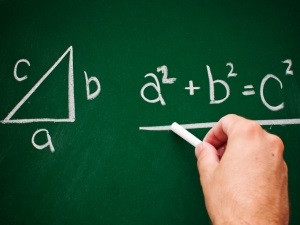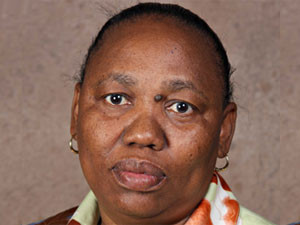
South Africa ranks among the lowest performing countries in terms of mathematics and science achievement scale scores.
This is according to results contained in the 2015 Trends in International Mathematics and Science Study (TIMSS), which highlight maths and science achievement scores of grade nine learners and ranked
59 participating countries.
"The top-performing countries were from Asia and the Northern Hemisphere and the lowest performing countries were Middle-Eastern and African," states the report.
For mathematics, the top five ranked countries were from East Asia: Singapore (621), the Republic of Korea (606), Chinese Taipei (599), Hong Kong SAR (594) and Japan (587).
The five lowest performing countries were Botswana (391), Jordan (386), Morocco (384), South Africa (372) and Saudi Arabia (368).
For science, four of the top five ranked countries were from East Asia: Singapore (597), Japan (571), Chinese Taipei (569), the Republic of Korea (556) and Slovenia (551). The five lowest performing countries were Saudi Arabia (396), Morocco (393), Botswana (392), Egypt (371) and South Africa (358).
However, the country has shown the biggest positive change, with an improvement of 90 points in science and 87 points in mathematics, according to the study.
"South Africa started with very low performance scores in 2003 and this upward shift translates to an overall performance improvement by approximately two grade levels between 2003 and 2015."
Minister upbeat
Despite the lowest scores, basic education Angie Motshekga said the department is very pleased with the consistent improvements seen in the 2015 TIMSS.
"This independent study gives an encouraging account of how we measure up in a widely recognised international testing programme aimed largely at assessing whether countries are making progress in education over time," Motshekga said at the release of the results of the study on Tuesday.

She said the TIMSS 2015 study points towards a steady but upward trajectory of the education sector.
"Our participation in internationally benchmarked studies provides valuable and credible information that can disentangle post-truth politics and affirm the upward trajectory in the sector evidenced by improving mathematics and science skills; better schooling conditions; and decreasing inequality in education communities," she said.
She said large-scale assessment programmes such as TIMSS offer a reliable independent measure to monitor the performance of learners in key subject areas in order to assess the health of the education system.
The study shows that SA has made the biggest improvement of any education system in the world since participating in the study, noted Motshekga.
"TIMSS performance from 2003 to 2015 shows that there was a significant improvement of 87 points for mathematics and 90 points for science, more than for any other country with comparable data.
"The improved TIMSS scores should also be viewed in context of concentrated efforts and support provided in the senior phase. Historically, this phase has been a challenge for the sector."
SA in the spotlight
Developed by the International Association for the Evaluation of Educational Achievement, TIMSS is a cross-national assessment of maths and science levels of learners from the various participating countries.
The study which is conducted every four years, allows participating nations to compare learner educational achievement across borders.
TIMSS was first administered in SA in 1995 and has continued to be administered in 1999, 2003, 2011 and 2015.
To determine achievement scores, the study uses three measures, namely, average mathematics and science scale scores in TIMSS 2015 for participating countries, change in mathematics and science achievement scores for countries which participated in TIMSS 2003 and TIMSS 2015 and the TIMSS benchmarks to present the mathematics and science achievement profile of selected countries.
Internationally, TIMSS is tested at the grade four and eight level. In SA, learners in grade nine were assessed for both maths and science, while learners in grade five were only assessed for mathematics.
Share